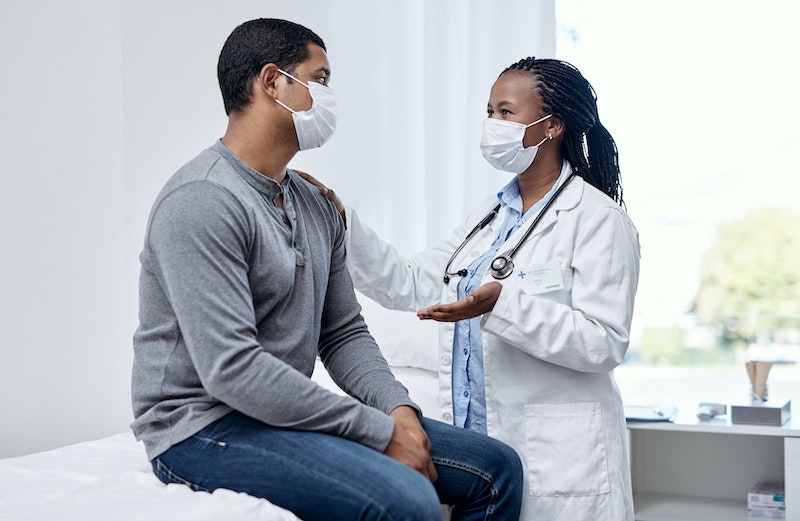Pop quiz: When was the last time you got a physical? Or went to the dentist? Many people have postponed routine appointments like these during the pandemic: According to a TIME-Harris poll conducted in February 2021, 78% of respondents put off at least one medical service in the last three months because of COVID-19. Dental exams were at the top of the list at 30%, followed by annual physicals at 27%.
We had good reason to put off some of those routine appointments, of course. For many, staying safe has meant largely staying home. But delaying care, especially for chronic conditions, can have undesirable consequences.
“For conditions such as blood pressure that need to be checked a few times a year, delaying checkups can put people at greater risk for heart attacks or strokes,” says Matthew Mintz, MD, FACP, a primary care physician and internist based in Bethesda, MD.
Managing current conditions is only one part of the puzzle. Without routine screenings or checkups, you may receive a delayed diagnosis for a serious illness or disease that you didn’t even know you had. What Appointments Should You Prioritize?
If you’ve put off medical care for a year or more, it might be hard to know where to start. Here’s a checklist of the appointments you should prioritize:
Annual checkup
Your first stop should be to see your primary care physician. This visit will most likely include:
- a vital signs check (temperature, pulse, blood pressure)
- blood tests (evaluating white blood cells, blood sugar levels)
- cholesterol levels, and kidney and liver function
- and a physical exam
How often you need a physical depends on your medical history and age, says Mintz. While some doctors recommend having a yearly checkup, others say that if you’re relatively healthy, you can go every two or three years. (The National Institutes of Health has its own schedule for exams.) Additionally, the Centers for Disease Control and Prevention (CDC) recommends that healthy adults have their cholesterol checked every 4 to 6 years.
Cancer screenings
Most annual checkups should include one or more cancer screenings, based on your gender, age, and medical history. Adults between the ages of 50 and 75 should be tested for colorectal cancer at regular intervals. If your family/medical history warrants it, your doctor may suggest starting those screenings even earlier.
Women typically get a pap smear, which screens for cervical cancer, every three years, starting at age 21. Once a woman is in her 30s, if she also tests negative for HPV, that interval can be extended to every five years. And guidelines for breast cancer screenings vary: Some experts recommend getting a mammogram at age 40, while others delay until 50. Talk to your doctor about what’s right for you.
Postponed medical procedures
In the early days of the pandemic, many non-life-threatening and elective surgeries and procedures were postponed or canceled to free up medical staff for COVID duties and guarantee patients’ safety. “Consider rescheduling those as soon as possible,” says Margaret Day, MD, a family medicine physician at University of Missouri Health Care.
Dental visit
Good oral hygiene isn’t just important for the health of your teeth and gums — it can also have further-reaching effects throughout the body. (For instance, experts have long surmised that there may be a link between gum disease and heart disease.) Though conventional wisdom holds that you should visit the dentist every six months for a cleaning and exam, the American Dental Association recommends speaking with your dentist about the frequency that’s right for you.
Vision care
Find yourself squinting at the computer even harder than you did a year ago? It might be time to have your vision checked and your prescription updated. The American Academy of Ophthalmology recommends getting your eyes checked once in your 20s and twice in your 30s. After 40, your doctor will recommend how often to get complete vision exams, with factors like diabetes, high blood pressure, and a family history of eye disease all potentially influencing your exam schedule.
Still Anxious About Seeking Care?
We don’t blame you! We’ve spent more than a year social distancing, so it would make sense to have some nerves about visiting the doctor. For some appointments, telemedicine may be an option.
“Telemedicine has become a real silver lining to the pandemic,” says Mintz. “As a physician, I have learned that there are a lot of things that I normally do that can be done without an in-person visit,” he says, from discussing sleep issues to helping a patient manage their depression. Still, he points out, telemedicine isn’t a solution for all situations. Many types of appointments, like dental visits or mammograms, simply require an in-person visit.
Give yourself some peace of mind (and get wise to the safety guidelines) by calling your physician’s office ahead of time, says Day. And remember: “In general, your risk of contracting COVID-19 by coming in person for a visit to your health care team is very low, especially with the infectious disease precautions in place.”
And remember, if you haven’t gotten a COVID vaccine yet, they are safe, effective, and free. Once you're vaccinated you can feel a lot better about returning to normal health care visits, among other things.
AMY WILKINSON
Rally Health






